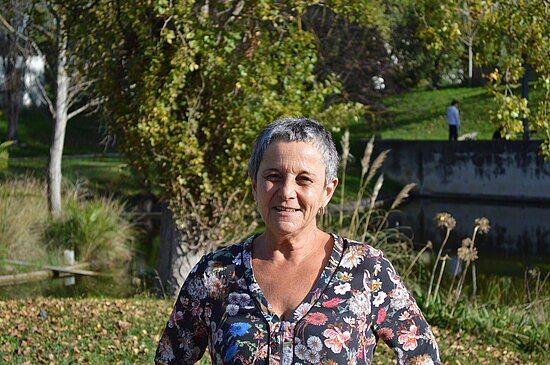Prof. Natália Alves

Natália Alves is an associate professor at Instituto de Educação, Universidade de Lisboa. She holds a PhD on Sociology of Education.
Her main fields of research are school to work transitions and IVET and CVET policies, forms of provision and practices.
CG9: Adult Education and Gender: Adult Education and Lifelong Learning policies for women
Co-Moderator:
- ALVES, N; SCHMIDT-LAUFF, S; DOUTOR, C.; CAMPOS, L. (2020): Contexts of Recognition of Prior Learning. Andragoške studije, 2, 87-110.
- NEVES, T.; ALVES, N.; CONCETTA, A.; DOMOVIC, V. (2019): The changing meanings of Lifelong Learning policies: consequences for young adults and their life courses. In: AMARAL, M.P.; KOVACHEVA, S.; RAMBLA, X. (Hrsg.): Navigating between Knowledge and Economy. Lifelong Learning Policies for Young Adults in Europe. Bristol. S. 209-2016.
- RODRIGUES, M.; QUEIROGA R.; RIBEIRO, A. B.; ALVES, N.; NEVES, T. (2019): Lifelong learning policies supporting young adults in two Portuguese regions, International Journal of Lifelong Education, DOI: 10.1080/02601370.2019.1690596
- ALVES, N.; GUIMARAES, P. (2017): COMPALL Winter School students’ motivations. In: EGETENMEYER, R.; GUIMARAES, P.;
- NÉMETH, B. (Hrsg.): Joint Modules and Internationalisation in Higher Education. Reflections on the Joint Module “Comparative Studies in Adult Education and Lifelong Learning. Frankfurt. S. 143-158.
- GUIMARAES, P., ALVES, N. (2016): Adult educators in Portugal: from the European Union guidelines to a national public policy of lifelong learning technicians. In: EGETENMEYER, R.; SCHMIDT-LAUFF, S.; BOFFO, V. (Hrsg.): Adult Learning and Education in International Contexts. Future Challenges for its Professionalisation. Frankfurt. S. 75-76.
- ALVES, N.; ALMEIDA, A.J.; QUEIROGA, R.E.; GUIMARAES, P. (2018): Vocational education and training policies: the tension between inclusion, employability and democratization. IN: GÓMES CHOVA, I.; LÓPEZ-MARTÍNEZ, A.; CANDEL-TORRES, I. (Hrsg.): EDULEARN18 Proceedings 10th International Conference on Education and New Learning Technologies. Valencia. S. 76697678.


